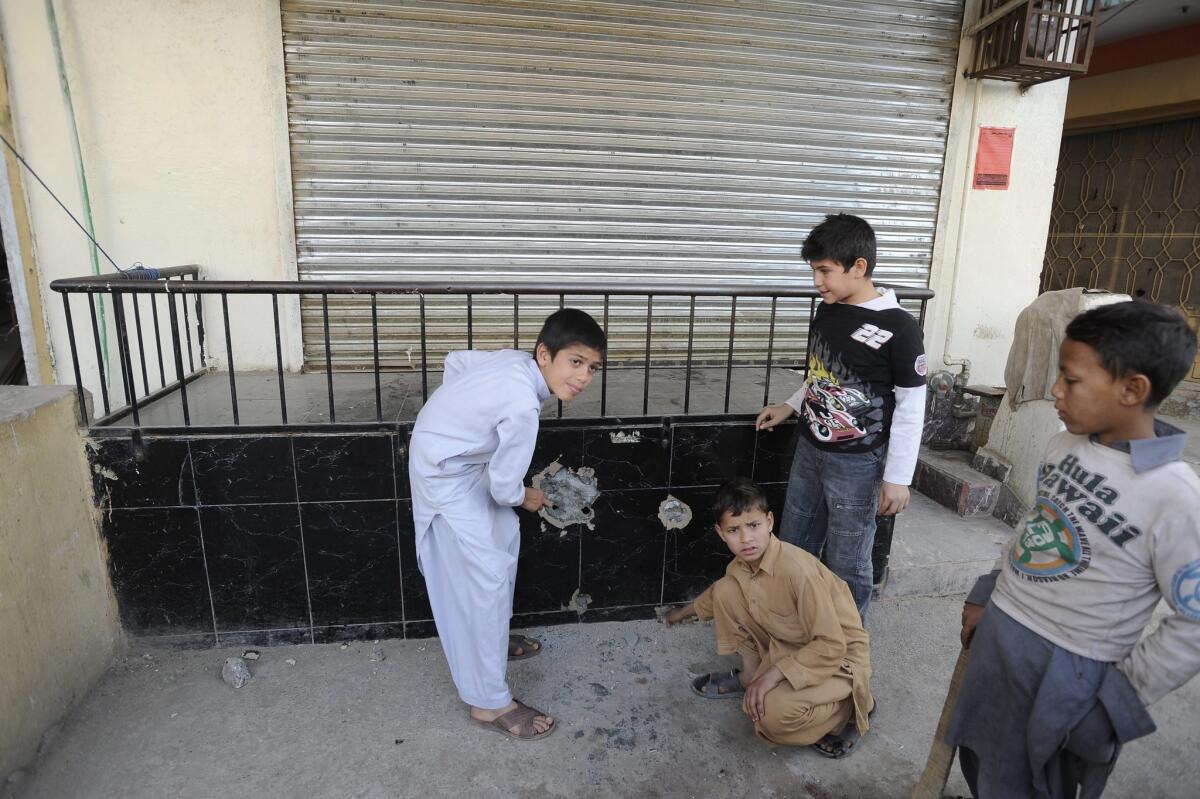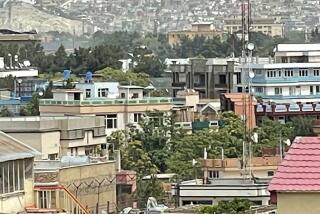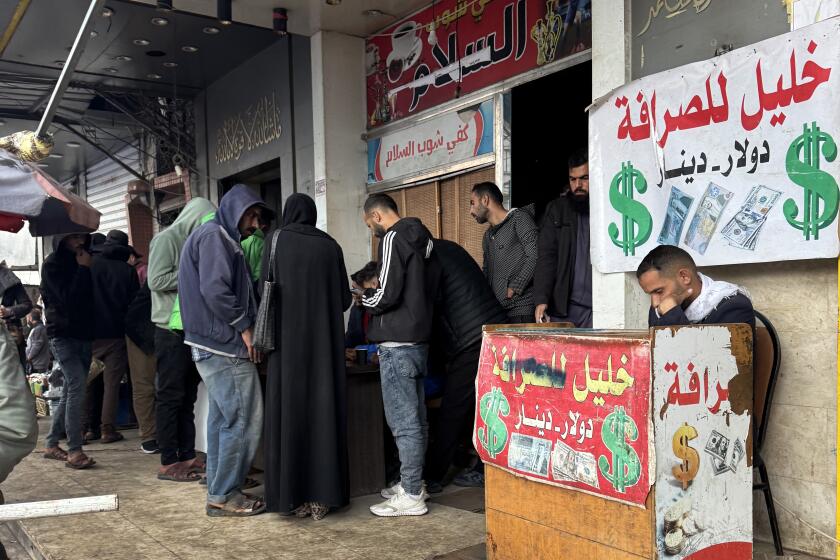Key figure in Haqqani militant group is shot to death in Pakistan

ISLAMABAD, Pakistan – A financier and senior leader of the feared Haqqani network, a group credited with attacks on the Indian embassy in Kabul and numerous strikes on NATO forces in Afghanistan, was shot to death on the outskirts of the Pakistani capital of Islamabad, a Taliban spokesman said Monday.
Shortly after Nasiruddin Haqqani, the son of group founder Jalaluddin Haqqani, was killed late Sunday, his body was secreted away to Miranshah in the North Waziristan tribal area near the Afghan border to be buried, according to Taliban spokesman Shahidullah Shahid, who spoke to journalists by phone from an undisclosed location. This is the same area where Taliban leader Hakimullah Mehsud was killed in a U.S. drone strike on Nov. 1. Shahid said the two were close.
A member of the Haqqani family who asked not to be identified said Nasiruddin’s funeral was held Monday at an undisclosed location. “We do not know the motive for his murder,” he added.
Shahid charged that the Pakistan government was involved in Nasiruddin’s killing, adding that he believed it was done at the behest of the United States. “We will take revenge,” he said.
No one took immediate responsibility for the killing, and Islamabad police said they were not aware of the incident. Nasiruddin was returning home Sunday night from a mosque when he was shot in a car by a gunman on a motorcycle, according to media reports that could not be confirmed.
Nasiruddin, who is on both U.S. and U.N. global terrorist lists, is believed to be the network’s main financier, negotiator and a key liaison with outside groups. Nasiruddin’s brother, Sirajuddin Haqqani, heads the network while Jalaluddin remains its figurehead. Nasiruddin has been individually sanctioned, making him subject to an assets freeze, travel ban and arms embargo, while Sirajuddin is the object of a $5-million U.S. reward for information leading to his arrest.
“Nasiruddin was a very important member of the network and was mainly involved in dialogue-related matters for the group,” said a religious scholar with close links to the Haqqani family. “He was a frequent traveler to the Middle East since his mother lives there and is an Arab. He was the face of the group for the Arab world, since he spoke good Arabic and would collect funds from the region.”
The scholar speculated that Nasiruddin may have been killed because of a dispute over how victims of kidnappings –- a key funding source for the network -- should be handled, or may have been assassinated by Afghan intelligence agents.
The Haqqani network is among the most feared insurgent groups fighting U.S. troops in Afghanistan. But it has suffered heavy losses. Nasiruddin’s brother Badruddin, said to be the group’s operational commander, was killed in a drone strike in August 2012. And another brother, Mohammad Haqqani, was killed in a drone strike at his home in the Miranshah area. Their father Jalaluddin’s health is suffering, according to tribal residents, which is why Sirajuddin has assumed more responsibility.
A curfew was imposed on Miranshah and other parts of restive North Waziristan by the local adminstration starting at dawn on Monday, with all markets and bazaars closed, reportedly because a military convoy was travelling through the area.
A resident of Miranshah who requested anonymity said he’d heard about Nasiruddin’s funeral but was unable to leave his house to investigate because of the curfew. “People do not know where he was buried,” he said by telephone.
The Haqqani network is a product of Afghanistan’s violent past. As a mujahedeen leader, founder Jalaluddin was reportedly sponsored by the CIA, Saudi Arabia and Pakistan during the fight against the Soviets and their Afghan supporters in the 1980s.
He joined the Taliban government after it took power in 1996 and is said to have close ties to Al Qaeda. When the Taliban regime fell after the 2001 U.S.-led invasion, he joined the insurgency. Analysts have described the Haqqani network as Afghanistan’s most capable, resilient and potent insurgent group.
ALSO:
Kerry: Nuclear talks fell apart because Iran balked
Cosmonauts take Olympic torch for a walk in space
U.S. military speeds aid to Philippines for Typhoon Haiyan victims
Special correspondent Sahi reported from Islamabad and staff writer Magnier reported from New Delhi. Special correspondent Zulfiqar Ali in Peshawar, Pakistan, contributed to this report.
More to Read
Sign up for Essential California
The most important California stories and recommendations in your inbox every morning.
You may occasionally receive promotional content from the Los Angeles Times.










